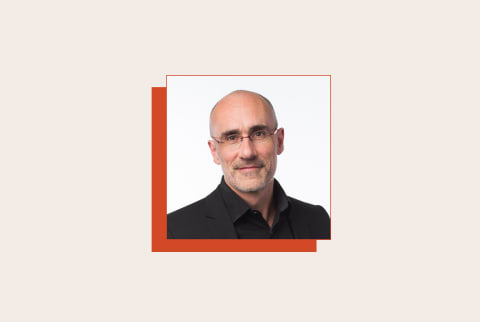Advertisement
A Social Scientist Offers 3 Tips To Overcome Success Addiction & Be Happier


Are you addicted to success? According to Arthur Brooks, Ph.D., author of From Strength to Strength, it's easy to develop a tolerance to satisfaction—and so you might crave more and more admiration or status without ever reaching a sense of fulfillment. "People always think: 'If I get that next promotion, or I get that better job, or if I'm at the top of my field, then I'll feel satisfaction that will last forever,'" he says on this episode of the mindbodygreen podcast. But, alas, that gratification is fleeting—the dopamine hit only lasts until the next achievement, experience, or milestone comes across your radar.
OK, so success addiction is not actually productive to mental well-being and happiness. But how can you overcome that ambitious urge, especially if you have a goal-oriented personality? According to Brooks, "We can manage ourselves to greater amounts of wellness and enduring satisfaction." Here's how he recommends changing your mindset:
Avoid a "haves" management strategy.
According to Brooks, many people think they'll be satisfied if they have what they want, be it experiences, relationships, rewards, status, etc. He considers this a "haves" management strategy—but it's inherently flawed. "The right model of satisfaction is not getting what you have; it's actually what you have divided by what you want," he says. A little mental math: If "haves" divided by "wants" equals satisfaction, you want the denominator of that fraction to be as small as possible. The smaller the denominator, the bigger the outcome.
"Research [shows] that by wanting less, we can become more satisfied," Brooks says. "So the solution is not to have more; it's to want less." That's why he actually recommends his students adopt a "reverse bucket list," where they toss desires out of the bucket—consider it "spring cleaning" for true happiness. "The Dalai Lama told me, the secret to stable and lasting satisfaction is not to have what you want but to want what you have."
Walk a transcendental path.
Brooks references the Grant study, led by psychiatrist George Vaillant, M.D., which followed 268 male Harvard University students for 75 years (from 1938 to 2013) and discovered seven predictors of happiness as people age. (Vaillant breaks down all the details in his book, Triumphs of Experience). Brooks wholeheartedly agrees, but he would actually add one more to Vaillant's list: "You need to walk a transcendental path," he says.
The connection between spirituality and emotional well-being is strong: In fact, MRI scans have shown that participants with a sense of spirituality had thicker parietal, precuneus, and occipital regions1 of the brain, which has a huge impact on your overall brain health and mood. Now, that doesn't necessarily mean you must turn to religion; people find spirituality through multiple angles, such as meditation, nature, music, etc.
So long as you can reflect on the universal human experience, Brooks says, you're all set. "I find that the happiest older people find a way to zoom out of life," he explains. "They're not thinking about me, me, me every second. The transcendental path gives you peace and perspective."
Tap into your crystallized intelligence.
Says Brooks, as you age, your intelligence starts to shift—it's not that you become more or less capable, but he says your skills will ultimately change. If you resist the change, your happiness will likely suffer; if you embrace the change, you will feel more fulfilled in the long run.
So how does your intelligence change? "Early on in life, you have what's called fluid intelligence," Brooks explains. "Fluid intelligence is your natural ability to focus, to concentrate, and to solve problems… It gets higher in your 20s, it peaks usually in your late 30s, early 40s, and then it starts to decline." You might start to feel a sense of boredom with what you're doing, he says, and that's what sparks a "midlife crisis" for many—you might start looking for new hobbies, experiences, or relationships to fill that void.
However, as this fluid intelligence declines, Brooks says a different type of intelligence arrives hot on its heels: crystallized intelligence. “That increases through your 40s, 50s, and 60s and stays high in your 70s and 80s," he explains. "It's your wisdom curve. It's like moving from Mark Zuckerberg to the Dalai Lama. It's your ability to teach—not to answer any question but to know which is the right question to ask." That said, you might find more fulfillment in teaching, explaining concepts, or becoming a mentor.
"So the key is to know that your skills are going to change, anticipate what kind of change, and walk from one curve to another," advises Brooks. This way, you won't have to struggle against these changes or consider them a "decline." It's simply another form of growth.
The takeaway.
It's easy to get caught up in achievements and success, but that satisfaction never truly lasts. To cement happiness for the long run, Brooks recommends a few mindset shifts to employ, all of which are especially helpful as you age.
